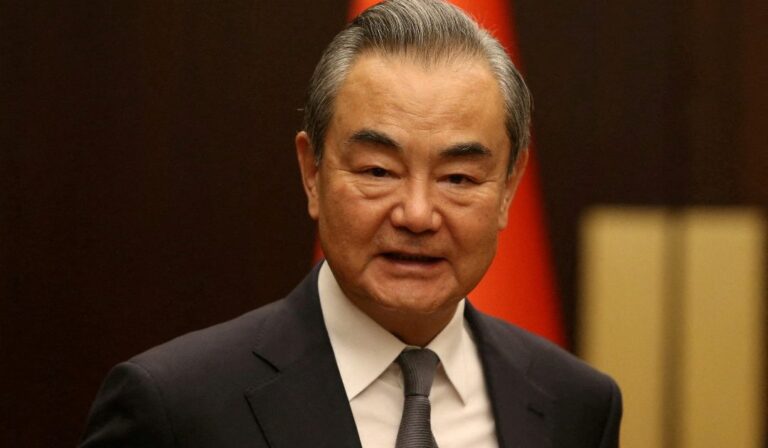Chinese Foreign Minister, Wang Yi, has outlined China’s vision for global governance at the 23rd Lanting Forum, held in Beijing on Monday, emphasising multilateralism, solidarity and fairness as central pillars.
Addressing diplomats, international guests and participants at the forum, Yi reflected on the 80th anniversary of the United Nations, noting the persistence of unilateralism and the emergence of new global challenges.
“How do we reform and improve global governance to make it more relevant in an increasingly multipolar world? That is a consequential question occupying minds everywhere,” the minister said in a speech shared with journalists in Abuja.
Yi reiterated President Xi Jinping’s recently launched Global Governance Initiative, describing it as China’s response to contemporary global challenges.
“This major initiative features and advocates five core concepts: first, sovereign equality to ensure the participation of all countries in global affairs; second, international rule of law for a just and orderly global governance system; third, multilateralism for greater solidarity and cooperation among nations; fourth, a people-centred approach for universally beneficial and inclusive outcomes; and fifth, practical results for an efficient global governance process,” the minister said.
He noted that the initiative, supported by over 140 countries and international organisations, complements China’s other international frameworks, including the Global Development Initiative, the Global Security Initiative and the Global Civilisation Initiative.
“The international community sees the initiative as a timely call for solidarity in a world threatened by fragmentation. It is a key measure to tackle global challenges and defend multilateralism,” Yi added.
The minister stressed that ongoing conflicts, which have displaced more than 100 million people worldwide, underscore the need for cooperation.
“Blind worship of might, power politics and bullying will only push the world back to the law of the jungle, seriously undermining the foundations of the international system and the rules that sustain it,” he warned.
Yi reaffirmed China’s commitment to the United Nations and international law.
“All countries should uphold the UN Charter and basic norms governing international relations, and fulfil international obligations in their entirety and in good faith. International rules should not be applied selectively according to one’s interests. No one should be allowed to cripple the United Nations,” he said.
On economic and development issues, he noted China’s continued support for the World Trade Organisation and high-quality Belt and Road cooperation.
“We will fully deliver on zero-tariff treatment for 100 per cent of tariff lines for least developed countries and African countries with diplomatic relations with China, to enable more nations to benefit from development opportunities,” he added.
He also addressed global issues, including climate change, artificial intelligence and regional security. On AI governance, Yi said, “Artificial intelligence should benefit all humanity; it should neither be monopolised by a few countries nor be maliciously abused.”
Yi further called for greater representation for developing countries in global decision-making, including reforms of the IMF, World Bank and the UN Security Council.
“China believes that the Global South not only has the will and the right, but also the capacity, to be a pivotal force in global governance reform,” he said.
He also highlighted China’s support for regional cooperation platforms such as APEC, BRICS and the Shanghai Cooperation Organisation, and announced the inauguration of the International Organisation for Mediation in Hong Kong.
Concluding, he linked China’s domestic development to broader global cooperation.
“A steadily modernising China will undoubtedly create vast opportunities for the world’s common development. A China committed to peace and development will take on greater responsibility in advancing human progress,” he said.
Yi reaffirmed China’s readiness to work with the international community to build a more just and equitable global governance system.
Images are for reference only.Images and contents gathered automatic from google or 3rd party sources.All rights on the images and contents are with their legal original owners.

